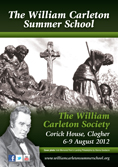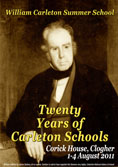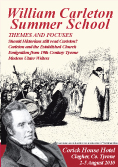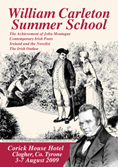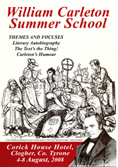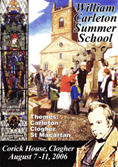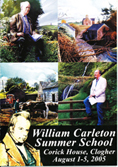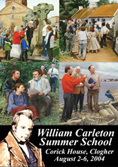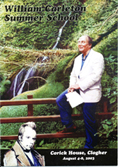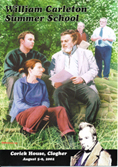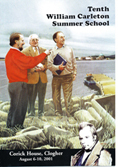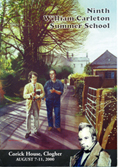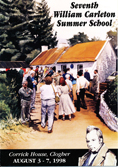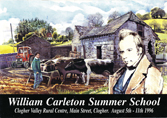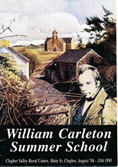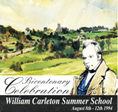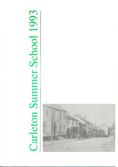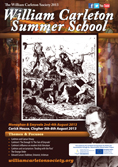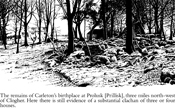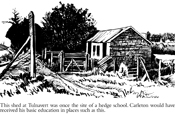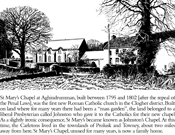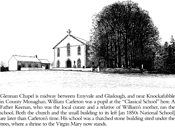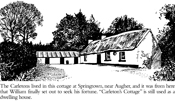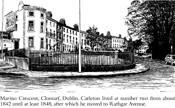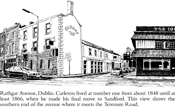"I was the youngest of fourteen children — seven sons and seven daughters — and I was born no less than five years after my next eldest brother, John. Six of my brothers and sisters had died before I ever saw the light. The fact of such an unusual period of time having elapsed between my birth and that of my brother John, gave rise to many odd conjectures. Some said it was a proof that I was destined for something great and extraordinary. Others, on the contrary, shook their heads, and expressed a fear that it might be the other way."
Carleton: The Autobiography
His Early Life William Carleton, the youngest of a family of fourteen children, was born in the townland of Prolusk, near Clogher in Co.Tyrone, on 20th February, 1794. Although there is little suggestion that the Carletons were upwardly mobile, they did move house frequently within the Clogher area and were established at the townland of Springtown before William left the family home.
His primary education was got in the local hedge-schools, of which he was later to write uproariously funny descriptions. In his teens he attended more formal, and rigorous, Classical Schools at Donagh and Glaslough in north Monaghan.
Following an abortive excursion in 1814 as a poor scholar aspiring to the priesthood, Carleton returned to his somewhat leisurely life in the Clogher Valley before leaving home permanently in 1817.
During the next year he wandered southwards, through the counties between Clogher and Dublin, picking up work where he could. Tutoring the children of the middle-classes he sometimes found happy and secure situations and at other times suffered humiliation and extreme wretchedness. For some months he experienced abject poverty and near starvation when he tried his hand as a hedge- schoolmaster.
His early life and the years until he arrived in Dublin are told, somewhat in the style of the Gil Blas adventures, in his lively autobiography.
In Dublin, after trying various occupations, he became a clerk in the Church of Ireland Sunday School Office in Dublin. It was during this time that he began to write professionally.
In 1820 he married Jane Anderson who bore him several children.
Carleton's Cottage

The Springtown house has been maintained and is visited by many Carleton devotees each year.
Carleton in a sense united his country: the list of eminent persons to petition the Government to grant him a pension in 1847 represents all the different ways of being Irish. Nothing else could have brought together the President of the Catholic College at Maynooth and Colonel Blacker, the Orange leader, in the presence of Maria Edgeworth, Dan O'Connell's son, Oscar Wilde's father and the Rev.Dr. Henry Cooke, from Belfast.

